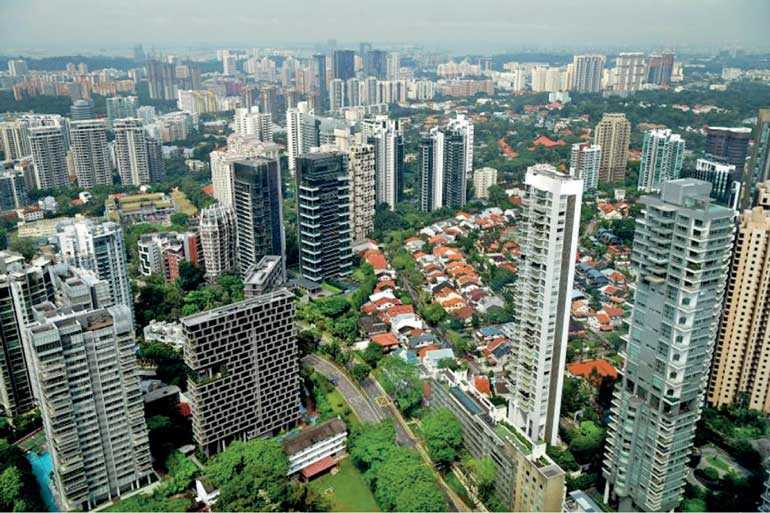Monday Feb 23, 2026
Monday Feb 23, 2026
Thursday, 19 April 2018 00:00 - - {{hitsCtrl.values.hits}}

http://www.straitstimes.com: SINGAPORE: Condominium owners who want to rent out their property for short-term stays can do so if owners holding on to at least 80% of the development’s share value, agree to allow such rentals, the Urban Redevelopment Authority (URA) has proposed.
This was one of the suggestions in a long-awaited public consultation on Airbnb-style home-sharing launched by the URA on Monday (April 16), which aims to bring Singapore one step closer to finding a balance between nurturing disruptive industries and regulating them.
It proposed a new category of short-term accommodation for private residential properties, which existing developments can adopt if they have the owners’ consent and are registered as such.
In its proposed consultation documents, URA said the framework will look at how short-term stays can be applied to developments with common property, such as condominiums, as well as other aspects including fire safety requirements, the role of management committees and how to regulate the platform operators.
For condominiums governed by management councils, the URA is proposing that owners holding on to at least 80% of the share value agree to the change of use. This is similar to the threshold for most properties seeking en bloc.
The endorsement by the management councils will be valid for two years and needs to be renewed with an updated vote count each time. If the level of consent falls below 80%, the earlier endorsement will not be renewed.
In addition, the URA said it would consider the impact of such short-term stays on the surrounding community.
Condominiums, which have management councils and localised security measures, are more likely to be considered favourably for a change of use, especially if they are located in mixed-used areas like commercial centres or business parks, or sites with good traffic infrastructure.
On the other hand, most landed housing estates are located in areas with relatively quiet and narrow roads, and have no governance structures. As such, the URA is unlikely to approve short-term stays in such places, it said.
The agency is also considering an annual rental cap of 90 days and a maximum occupancy of six people per unit – in line with existing rules.
Other proposed rules include hosts providing URA with a record of guest details of each stay for security reasons, and installing equipment like fire alarms and fire extinguishers.
The URA also said that management committees can “put in place additional measures to manage potential disamenity and disturbances”, such as introducing by-laws with a lower rental cap than the proposed 90 days, or requiring home-sharing owners to pay additional maintenance fees for common areas and facilities.
The agency also wants to regulate commercial platform operators like Airbnb and Homeaway, by requiring them to list only residential premises that have been registered for short-term use.
It also wants such companies to keep track of the number of nights such units have been rented, and reject rental bookings if the annual 90-day quota is exceeded. It may also need to help collect taxes from hosts using their websites.
The consultation will run till May 31, and members of the public can send feedback to [email protected].
Until a framework is finalised, however, the URA also urged all property owners to comply with the existing laws, which means a minimum stay of three months in private residential properties.
The move comes amid tension over short-term rentals, often for a few days to several weeks. Advocates say such home-shares offer a more authentic travelling experience while giving homeowners a chance to earn some money. Critics cite security and disturbance issues, especially with the frequent comings and goings of strangers.
Earlier this month, two former property agents were fined $60,000 each for renting out four units at D’Leedon in Farrer Road illegally.
In a statement, Airbnb’s head of public policy for South-east Asia Mich Goh said the public consultation is an “important step for the significant number of locals who want to share their homes, and travellers who want a unique and authentic experience when they visit Singapore”.
She did not comment on the specifics of certain clauses, like the URA’s proposed burden on homesharing platforms to allow only registered rentals to be listed. Anton Stanish, HomeAway’s Asia-Pacific vice-president, said of the proposed changes: “There is room to create a space in Singapore for vacation rentals to exist within clearly defined parameters.”
In a Facebook post on Monday afternoon, National Development Minister Lawrence Wong said that after the Government studied the matter on short-term accommodations for some time, “we think it is possible to allow (them) in private residential properties, but subject to appropriate regulation and safeguards”.
“In our compact, high-rise living environment, we always have to be careful about creating any potential disamenities or impacting the residential nature of our neighbourhoods. That’s why we’ve been very cautious about allowing short-term accommodations in Singapore,” said Wong.